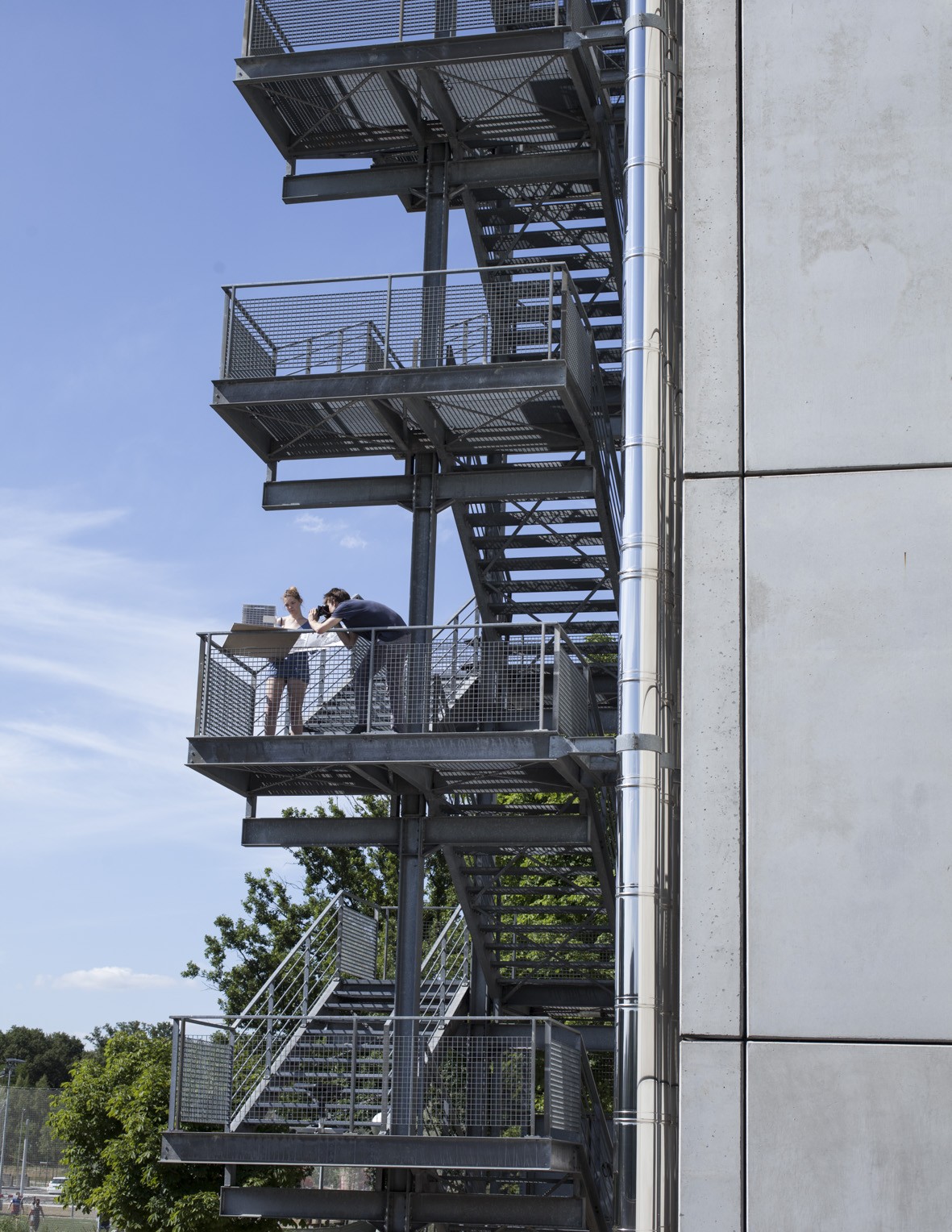OCS/AUSser
The Observatoire de la condition suburbaine (OCS) is the research team of the École d'architecture de la ville & des territoires Paris-Est. It belongs to the joint research unit Architecture Urbanisme Société : Savoir Enseignement Recherche (UMR AUSser), co-accredited by the CNRS and the French Ministry of Culture, and is a research component of the Université Gustave Eiffel.
The OCS scientific project is defined by the intersection of these three axes, which are considered in equal measure:
1- the first directly echoes the school's original program: the "territory" considered primarily in its "architectural" sense, i.e. in relation to related fields of spatial design (urban planning, landscape design, urban design, regional planning, architettura del territorio, urban project, suburbanism, landscape urbanism, etc.) and through certain territorial artifacts such as infrastructures;
2- architecture in the face of energy and environmental transitions, with a particular focus on issues relating to energy, agriculture and materials;
3- the history and theories of architecture and project thinking.
The specificity of the OCS's scientific project does not stem from the addition of these three axes, but rather from their overlap. The work carried out at the OCS is characterized by the fact that it cuts across at least two of them.
Since 2020 and the implementation of its third contract (2020-2025), UMR AUSser has been working on three themes, in which OCS also participates:
heritage and tourism: constructions, narratives, reinventions.
This theme is intended to strengthen the positioning and influence of the UMR and of architectural research in the field of Critical heritage studies and tourism studies on a national and international scale. These studies are characterized in particular by their urban dimension, which concerns both European and Asian cities, and by their interest in ordinary, often non-monumental, and recent heritage, particularly twentieth-century heritage.
Territories and landscapes in transition.
This theme focuses on urban phenomena in their morphological and historical dimensions. The specificity of our work lies in our focus on the long term and the large scale, as well as in our desire to combine historical and prospective thinking. Attention is paid to the materiality and historical genesis of towns and territories, combining both fundamental research and operational planning approaches.
Cultures, knowledge and cultural mediation.
This theme covers the dissemination, transmission and teaching of architectural and technical cultures and knowledge, as well as the visual and linguistic representations of architectural and urban design. The aim of this work is to understand the intellectual and professional substratum as a constantly shifting and re-elaborating material: theories, doctrines, critical essays, standards and manuals, prototypes and representations, and so on.
Direction
Éric Alonzo
Coordination
Isaline Maire
↓
write to us
Recruitment
Research Engineer
Institutions
UMR AUSser
Université Gustave Eiffel
To be continued ↓
Newsletters
Bulletin d'information n°1
Newsletter n°2
Newsletter n°3
Newsletter 4
Publications
Revus Marnes, documents d'architecture
Books
Cahiers du DSA
Cahiers du DPEA
↓
receive our infolettre
